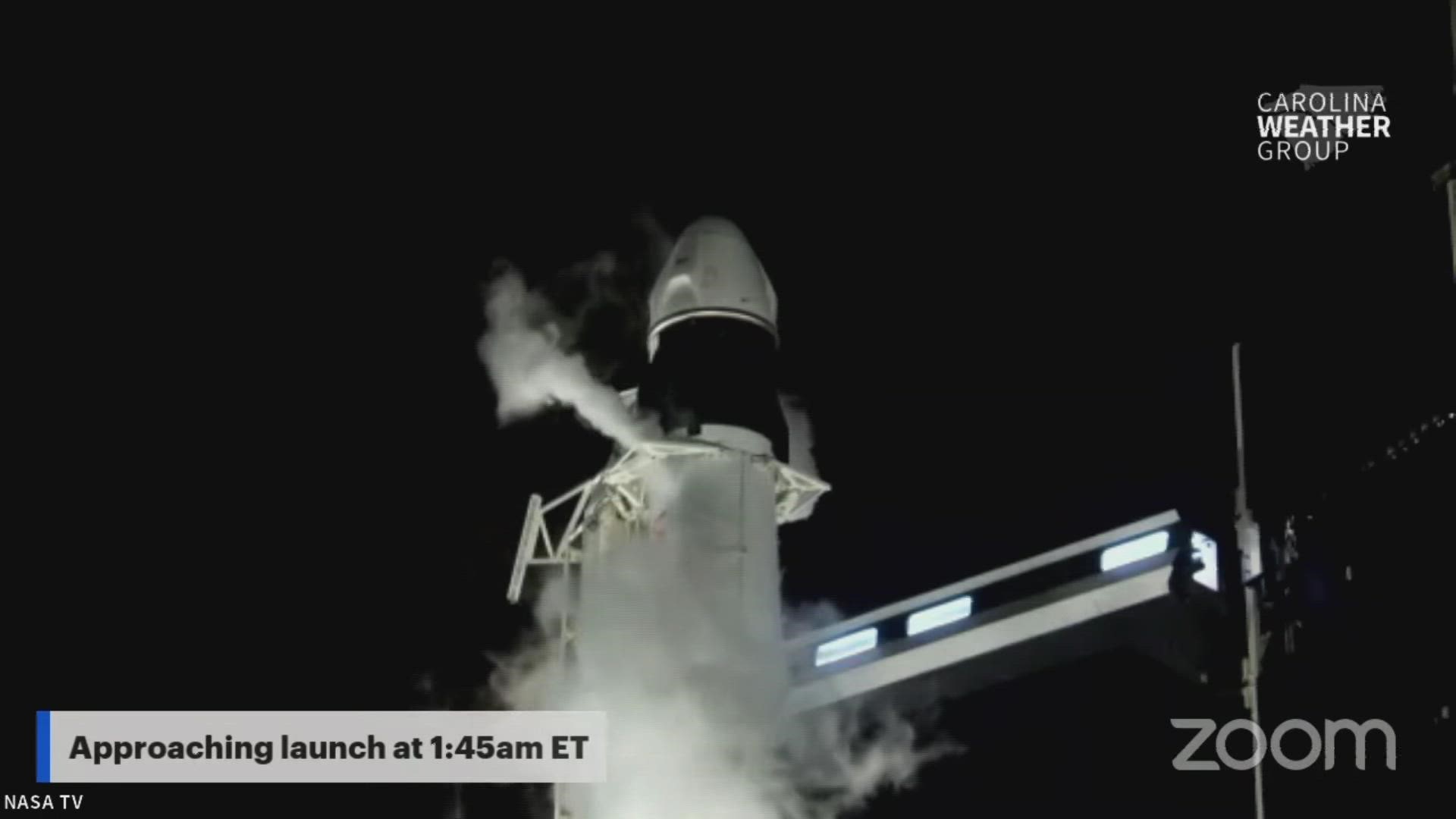CAPE CANAVERAL, Fla. — NASA and SpaceX scrubbed Monday’s launch attempt of the agency’s SpaceX Crew-6 mission to the International Space Station.
Officials decided to abort the launch after an issue prevented data from confirming a full load of the ignition fuel inside one of the SpaceX Falcon 9 first-stage engines.
NASA and SpaceX will skip a launch opportunity on Tuesday, Feb. 28, due to unfavorable weather forecast conditions. Assuming crews can resolve the technical problem, the next available launch attempt is at 12:34 a.m. EST Thursday, March 2.
“I’m proud of the NASA and SpaceX teams’ focus and dedication to keeping Crew-6 safe,” said NASA Administrator Bill Nelson. “Human spaceflight is an inherently risky endeavor and, as always, we will fly when we are ready.”
SpaceX has removed propellant from the Falcon 9 rocket and the astronauts have exited the Dragon spacecraft for astronaut crew quarters.
Aboard the rocket for the mission will be two NASA astronauts, mission commander Stephen Bowen and pilot Warren "Woody" Hoburg, United Arab Emirates astronaut Sultan Alneyadi, and Roscosmos cosmonaut Andrey Fedyaev who will serve as the mission specialists to the ISS for a science expedition mission.
This is the fourth spaceflight for Bowen. Crew-6 will be the first spaceflight for everyone else. The crewmates touched down in Florida on Feb. 21 in preparation for the upcoming launch.
They will fly aboard the SpaceX Crew Dragon spacecraft Endeavour, NASA says, carried by the company's Falcon 9 rocket.
The rocket arrived at NASA Kennedy Space Center’s Launch Complex 39A Thursday morning after rolling out from the SpaceX integration hangar not far from the launch pad, NASA said in a post. Friday, the rocket's nine Merlin first-stage engines "roared to life for seven seconds," NASA said, completing the routine but critical integrated static fire test.
Once they arrive at the ISS, Crew-6 will spend up to six months at the space station before returning to Earth.

